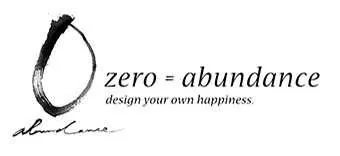Shared economy: what are we really sharing?
Modern capitalism is about denying sharing
One of the critical characteristics of modern capitalism is that it strictly defines ownership, which draws explicit boundaries around our assets. It has been helping us produce and consume things without risking our legitimate rights to own them at different phases.
However, while protecting assets, explicit ownership can prompt redundancy everywhere. If you own a product, other people are automatically denied access to it until you specifically grants it – which does not happen often in today’s economy. Even if the product is just sitting in your garage, others wouldn’t be able to use it. Ownership decouples serviceability from accessibility, albeit unintentionally.
Sharing economy
Then the sharing economy emerged to solve this issue, leveraging a state-of-the-art networking technology. It provided people with platforms, through which they could share products or services that would otherwise have belonged to a single owner’s garage.
Sharing economy, and opened up new opportunities to maximize the value of products/services by matching serviceability and accessibility on a real-time basis. Owners no longer had to look for renters through this network. The platform will do the job for him/her, using a well-designed system to pick appropriate/creditable renters.
Many people were excited about this trend, believing that we were finally in the era where we can create vibrant communities by sharing things, while reducing unnecessary consumption and helping save the planet. The excitement was augmented by the success of “star” start-ups such as Uber and AirBnB.
However, the sharing economy is not really sharing, says the article “The Sharing Economy Isn’t About Sharing at All,”in the Harvard Business Review, January, 28, 2015.
When “sharing” is market-mediated — when a company is an intermediary between consumers who don’t know each other — it is no longer sharing at all. Rather, consumers are paying to access someone else’s goods or services for a particular period of time. It is an economic exchange, and consumers are after utilitarian, rather than social, value.
Well, this is probably true. Take my Airbnb experience, for example. Excited about the sharing economy, I created an account and booked a room. But the quality of the room was rather disappointing, so I ended up sending a couple of questions to the host and informed them I would depart one day early (of course I paid in full). But for some reason the host didn’t like this, and posted very hostile comments about me publicly. I contacted Airbnb because I didn’t understand why I had to be criticized when I did nothing wrong as a customer. But Airbnb simply told me that the host had the right and freedom to “review” me however she wanted. Frustrated, I closed my account and decided “no more Airbnb.”
In hindsight, this is a typical example that there was no “sharing” happening through the “sharing economy” platform. The host rented out her room for money, and I, as a guest, sought a good deal. The host wanted to achieve the sale with minimum investments, and the guest felt the price didn’t match the quality offered. It was a pure economic exchange. There was nothing to share between us – well, except for some disappointments.
The article concludes that “building a community through shared economy” is rather a fantasy. Customers don’t want to share with people they don’t know. The only reason they use a sharing economy platform is to obtain convenient, cost-effective access to products/services. Therefore “access economy” should be the correct name, says the author, and access economy should NOT focus on “creating a cool community” as a pitch.
Then some questions arise: is what we believed to be a sharing economy nothing but an access economy? Or can sharing and economy still go hand-in-hand if we overcome the shortcomings of the current system?
What do we really mean by sharing? Do we really want to share, if prerequisites are met?
Are there any values “ambiguity” can add, for a truly shared economy?
A successful business model in the access economy will not be based on community, however, as a sharing orientation does not accurately depict the benefits consumers hope to receive. It is important to highlight the benefits that access provides in contrast to the disadvantages of ownership and sharing. These consist of convenient and cost-effective access to valued resources, flexibility, and freedom from the financial, social, and emotional obligations embedded in ownership and sharing.











